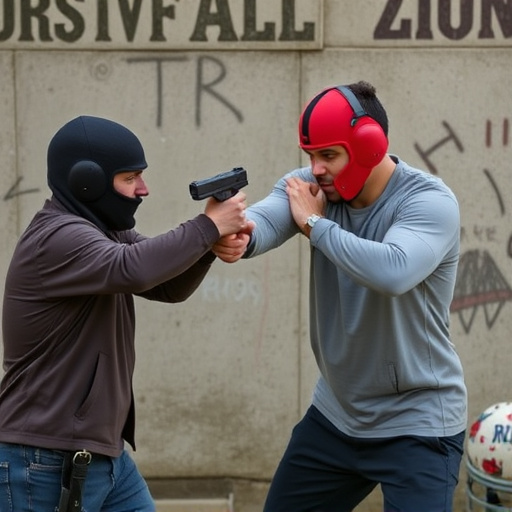Understanding U.S. state laws is essential when selecting a best stun gun for home defense, as regulations vary widely from open carry permissions and age restrictions to voltage limits and concealed carry licenses. Some states like Texas and Florida have lenient laws, while others like New York and California are more restrictive. Staying informed ensures compliance, allows for the selection of an effective stun gun, and promotes responsible use for personal safety.
“In today’s world, understanding stun gun legal restrictions is paramount for personal safety. This comprehensive guide offers a deep dive into the state-by-state regulations surrounding these non-lethal self-defense tools. From ‘Understanding Stun Gun Regulations’ to ‘Navigating Legal Consequences’, we unravel the complexities.
‘State-by-State Legalities’ decodes laws, while ‘The Impact of Conceal and Carry Policies’ explores critical factors. Learn which stun gun is best for home defense in specific states through ‘Factors to Consider’ and uncover common exceptions in ‘Common Exceptions and Exclusions’. Arm yourself with knowledge; stay safe.”
- Understanding Stun Gun Regulations: A Comprehensive Overview
- State-by-State Legalities: Decoding the Laws
- The Impact of Conceal and Carry Policies
- Factors to Consider When Choosing a Stun Gun in a Specific State
- Common Exceptions and Exclusions in Stun Gun Ownership
- Navigating Legal Consequences: Rights and Responsibilities
Understanding Stun Gun Regulations: A Comprehensive Overview

When considering the best stun gun for home defense, understanding the legal landscape is paramount. Each state in the U.S. has its own set of regulations governing the possession and use of stun guns, also known as electroshock weapons. These laws can vary widely, from strict restrictions to more lenient guidelines, making it a complex web to navigate.
Homeowners interested in equipping themselves with a stun gun must familiarize themselves with their state’s specific rules. Some states allow open carry, while others require a permit or even register the device. Certain regions have age restrictions, and some prohibit certain types of stun guns or limit their voltage output. Staying informed about these regulations is key to ensuring compliance and maximizing the effectiveness of your chosen best stun gun for home defense.
State-by-State Legalities: Decoding the Laws
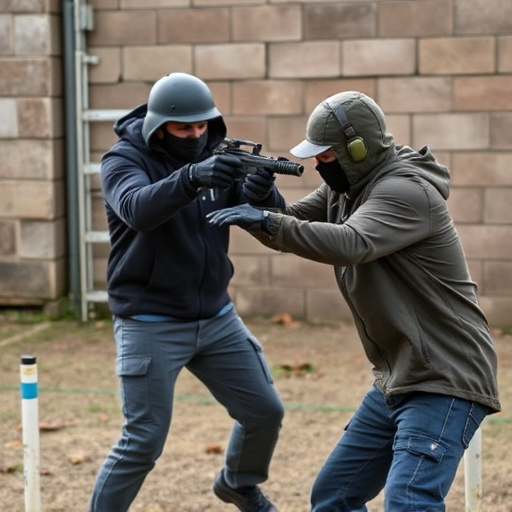
Understanding the legal landscape surrounding stun guns is a crucial step in choosing the best stun gun for home defense. The United States has a complex web of state and federal laws governing non-lethal self-defense tools like stun guns, making it essential to know your rights and responsibilities before purchasing one. Each state has its own set of regulations regarding who can possess, carry, and use stun guns, with restrictions varying widely. Some states allow anyone over a certain age to own a stun gun without a permit, while others require permits or even registration.
Decoding these laws requires careful research as they can change frequently. States like Texas and Florida are known for their relatively lenient stun gun laws, making them popular choices for those seeking home defense options. In contrast, states like New York and California have stringent regulations, including restrictions on the type, size, and power of stun guns allowed. For instance, California bans stun guns with a charge higher than 1200 joules, while some cities within New York restrict all stun guns entirely. Knowing these state-by-state legalities is key to ensuring you acquire a best stun gun for home defense that complies with local laws and provides the necessary level of protection.
The Impact of Conceal and Carry Policies
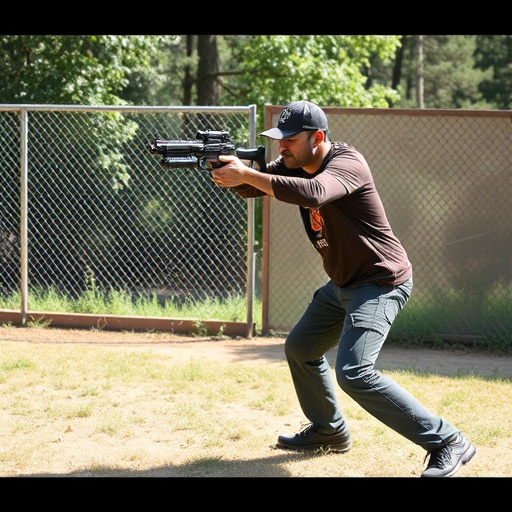
The impact of conceal and carry policies on stun gun legal restrictions varies significantly across states, shaping the accessibility and preferences for those seeking effective home defense options. In many states with permissive concealed carry laws, individuals can legally carry a stun gun for personal protection, choosing from a range of compact and discreet models available in the market, including top-rated best stun guns for home defense. These policies empower citizens to take charge of their safety while encouraging responsible ownership through background checks and training requirements.
Conversely, stringent conceal and carry regulations in other states limit or prohibit stun gun possession, arguing that such devices could fall into the wrong hands or be misused. This has led to a diverse landscape where some states embrace stun guns as legitimate home defense tools, while others view them with skepticism. As a result, prospective buyers must carefully consider the legal framework within their state to ensure compliance and make informed decisions when selecting a stun gun for personal protection, keeping in mind the best stun guns available that align with their specific needs and local regulations.
Factors to Consider When Choosing a Stun Gun in a Specific State
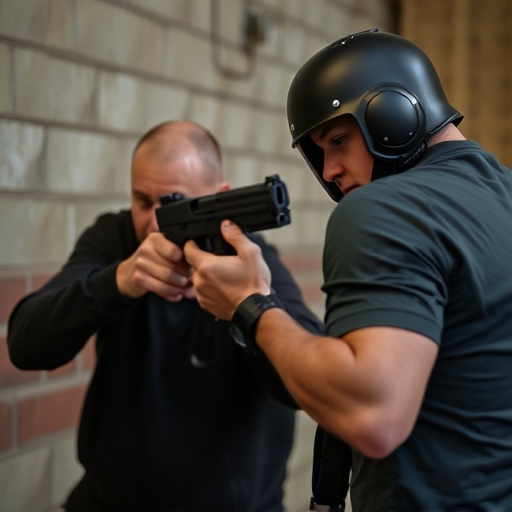
When choosing a stun gun in any state, it’s crucial to understand and comply with local laws regarding their ownership and use. Beyond legal restrictions, several factors come into play when determining the best stun gun for home defense. One of these is the level of protection needed; considering your environment and potential threats can guide you towards a stun gun with the appropriate voltage and frequency. Higher voltage generally means more power, but it’s important to balance this with comfort during use.
Another key factor is ease of use; features like simple activation mechanisms or lightweight designs can be critical for effective home defense. Waterproofness might also be beneficial, especially if you live in humid areas or plan to store your stun gun near sources of water. Additionally, the size and carry option should align with your lifestyle; discreet models are ideal for everyday carry, while larger ones may offer better protection when stored at home. Always check state-specific regulations on stun guns to ensure compliance before making a purchase.
Common Exceptions and Exclusions in Stun Gun Ownership
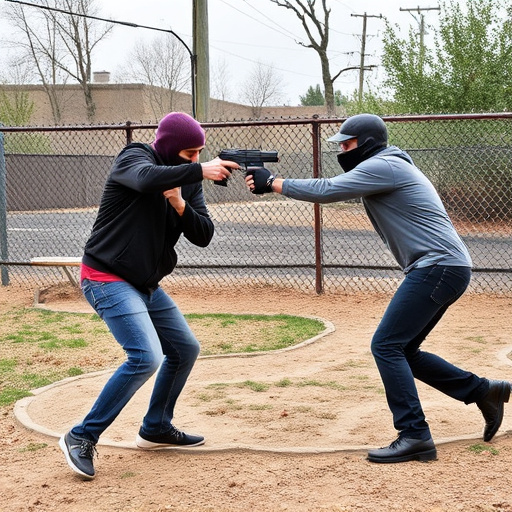
Many states have specific laws regarding stun guns, often with exceptions and exclusions that can vary widely. While some states allow open carry or concealed carry of stun guns for self-defense, others may restrict their use to law enforcement or place age restrictions on ownership. For instance, California generally prohibits the possession of stun guns, but makes an exception for individuals with a valid concealed carry permit. In contrast, Texas allows both open and concealed carry of stun guns without a license, making it a popular choice for those seeking a best stun gun for home defense in states with stringent firearm regulations.
Some states also exclude stun guns from certain restrictions if they are used for specific purposes, such as by security guards or individuals working in high-risk professions. Additionally, there might be loopholes or grey areas regarding stun guns that resemble non-lethal weapons or have unique features, which can lead to varying interpretations of the law. It’s crucial for stun gun owners to understand their state’s specific regulations and stay informed about any changes to ensure compliance with local laws.
Navigating Legal Consequences: Rights and Responsibilities
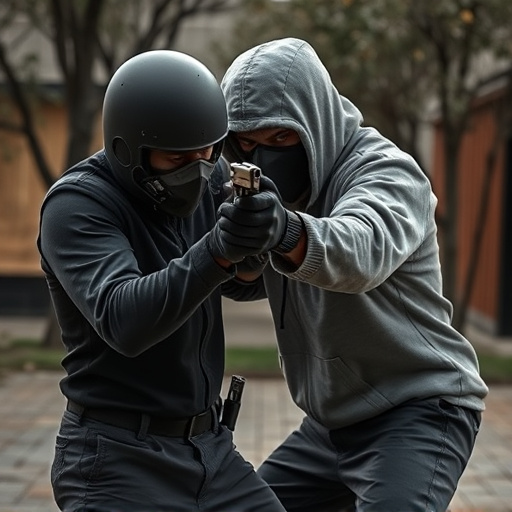
When considering a best stun gun for home defense, understanding the legal landscape is crucial. The legality of stun guns varies significantly from state to state in the US, with some allowing their open carry and others restricting them to concealed carry with specific permits. Navigating these legal consequences involves knowing your rights and responsibilities.
Each state has its own set of regulations regarding stun guns, including age restrictions, allowable voltage levels, and whether they can be carried in certain public places. For instance, some states permit stun guns without a permit while others require you to obtain a concealed carry license. Always check with your local law enforcement or legal authorities to understand the specific rules in your state. Responsible ownership includes adhering to these laws not only to avoid legal repercussions but also to ensure the safety of yourself and those around you, making your chosen home defense stun gun an effective and responsible tool.
When considering the best stun gun for home defense, understanding your state’s specific legal restrictions is paramount. This comprehensive guide has decoded the varying stun gun legalities across the US, highlighting the impact of conceal and carry policies and offering insights into navigating potential consequences. By delving into these nuances, you can make an informed decision when choosing a stun gun that aligns with your state’s regulations, ensuring both your safety and adherence to the law.
